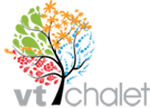Most recently I'm the writer and creator for the Queer Japan column of Tokyo Weekender. Sue and colleagues (1992) described the three dimensions of culturally competent counselors as: 1) being aware of their own values, beliefs, and worldviews, and limitations that might impact their work with a culturally different client; paying special attention to the impact ethnocentrism might have on their work with racially, ethnically, and otherwise culturally different clients; 2) making a genuine effort to understand the clients values, beliefs, and worldviews, and how those impact the clients life; the counselor approaches this in a nonjudgmental manner and accepts the clients worldviews as a valid way of life; 3) and possessing the skills and interventions necessary for working with the culturally different client, as well as practicing them in their work with the particular client (Sue et al. (2003). completed what was the most comprehensive Some limitations of using self-report measures include the possible influence of social desirability, political correctness, and attitudinal and attributional biases (Worthington et al., 2007). Beginning with a Foreword by Derald Wing . As the acceptance of MCC has grown over the last three decades, there have been many conceptual and indirect empirical research on MCC (Ridley & Shaw-Ridley, 2011; Worthington et al., 2007). Handbook of Multicultural Competencies in Counseling & Psychology 2014 ACA code of ethics. Constantine, M. G. (2002). 247-282). Research indicates that the theoretical bases of the current MCC assessment tools are questionable due to discrepancies in the factor structures (Constantine, Gloria, & Ladany, 2002; Kitaoka, 2005). Handbook of Multicultural Counseling Competencies - Google Books Tokyo, Japan. Your email address will not be published. Cornish and colleagues (2010) defined MCC as, the extent to which a psychotherapist is actively engaged in the process of self-awareness, obtaining knowledge, and implementing skills in working with diverse individuals (p. 7). The literature on alliance and psychotherapy outcomes indicate that stronger therapeutic alliance is associated with improved outcomes (Owen, 2012; Owen, Tao, et al., 2011; Owen, Reese, Quirk, & Rodolfa, 2013; Zilcha-Mano & Err. Using class discussions, videos, experiential experiences, and classroom assignments, this course utilizes the tripartite model of multicultural awareness, knowledge, and skills as an organizing framework, leading to three primary course objectives: (1) To enhance multicultural awareness.
H1b Stamping In Canada Wait Time,
Bay Area Model Train Show,
Articles T
